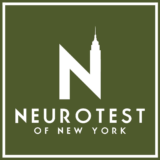About 1.7 million people each year experience a traumatic brain injury (TBI) in the United States. The incidence of TBI may be even higher because mild TBI goes unreported. A concussion is a mild TBI. A concussion results when something hits your head and your brain hits your skull. You can experience changes in your mentation with or without losing consciousness. When can you return to work or play after a concussion? Let’s find out the answer.
Causes of a Concussion
A traumatic brain injury (TBI) can be mild to severe depending on your level of consciousness. A concussion or mild TBI results when something causes your brain to collide with the inside of your skull.
The 3 most common causes of a concussion include falls, motor vehicle accidents, and sports-related injuries. Falls are more common in the elderly. Sports-related concussions are more common in younger people.
Athletes who participate in contact or collision sports are more at risk for a concussion. High risk sports include boxing, football, ice hockey, wrestling, soccer, and rugby. Your chance of a repeat concussion is 4-5 times higher after experiencing 1 concussion.
Signs and Symptoms of a Concussion
A concussion or mild TBI causes your brain to collide with the inside or your skull. The collision leads to brain dysfunction and results in physical, emotional, cognitive and sleep symptoms. The most common symptom is headache.
- Physical symptoms – headache, blurred vision, dizziness, nausea and vomiting, fatigue
- Emotional symptoms – anxiety, depression, personality changes
- Cognitive symptoms – confusion, disorientation, amnesia, delayed responses
- Sleep symptoms – insomnia, increased sleepiness
Most symptoms will resolve within a few weeks. However, symptoms that persist longer than 1-2 months develop post-concussive syndrome. The most common persistent symptoms are headache and dizziness. Other symptoms of post-concussive syndrome include insomnia, fatigue, impaired memory and concentration, mood disturbances, and light/noise sensitivity.
How is a Concussion Diagnosed
There are no specific tests to diagnose a concussion. Diagnosis is made by recognizing the signs and symptoms of a concussion in the appropriate setting. There are tests that may help in evaluating the extent of brain injury.
An MRI or CT scan helps identify brain bleeds, brain contusions, axonal injury, and skull fractures.
A neuropsychological testing done by a psychologist helps in quantifying the extent of cognitive dysfunction.
An electroencephalography (EEG) done at Neurotest of New York helps identify potential seizures that can develop after a concussion.
Treatments for Concussion
There are no specific treatments for a concussion. Treatment is aimed at supportive care and prevention of another concussion.
Nonpharmacologic Treatment
- Immediate removal from play after a concussion
- Limit cognitive and physical activities – Avoid television, texting, video games, computer, aerobic exercise
- Stepwise gradual return to routine activities
Pharmacologic Treatment
- Similar medications are used to treat symptoms in concussed and non-concussed patients. Medications can be helpful to treat headaches, insomnia, anxiety/depression and post-concussive seizures.
When Can You Return to Work and Play
The answer varies and is not quite that simple. Recovery time varies between people. Most symptoms resolve spontaneously by 1-2 weeks. Following a stepwise approach, you can return to work or school once you can perform your usual activities without symptoms. Athletes may need to refrain from play for at least 10 days after a concussion since this period is the greatest risk for another concussion.

